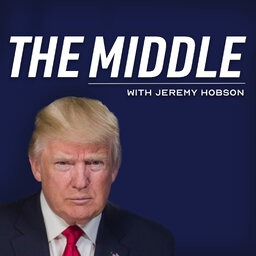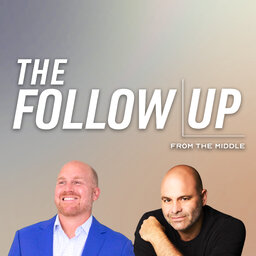What if another January 6th happens - only worse?
On this episode of The Middle, we explore the subject of a new documentary film called "War Game." The filmmakers, along with the Vet Voice Foundation, gathered former military and political leaders from the last five presidential administrations together to simulate another January 6th-style event, only much worse, because there’s a split in loyalty within the military.
The film premiered at the 2024 Sundance Film Festival in Park City, Utah, where Jeremy Hobson interviewed many people involved in the film: directors Jesse Moss and Tony Gerber, Janessa Goldbeck, CEO of the Vet Voice Foundation, former Montana Governor Steve Bullock, former North Dakota Senator Heidi Heitkamp, Army Lieutenant Colonel (Ret.) Alexander Vindman, former Trump Administration Department of Homeland Security Advisor Elizabeth Neumann, Major General (Ret.) Linda Singh, and Marine Corps Veteran and investigative journalist Chris Jones.
This episode originally aired on February 16th, 2024.
In 1 playlist(s)
The Middle with Jeremy Hobson
The Middle with Jeremy Hobson is a national call-in talk show focused on bringing the voices of Amer…Social links
Follow podcast
Recent clips

The Follow Up: Fear in Trump's First Year, Michigan and the Midterms
22:56

One year of Trump: How are His Policies Affecting You?
49:39

The Follow Up: Minneapolis, Maduro’s Capture, and the First Days of Mamdani
26:52
 The Middle with Jeremy Hobson
The Middle with Jeremy Hobson